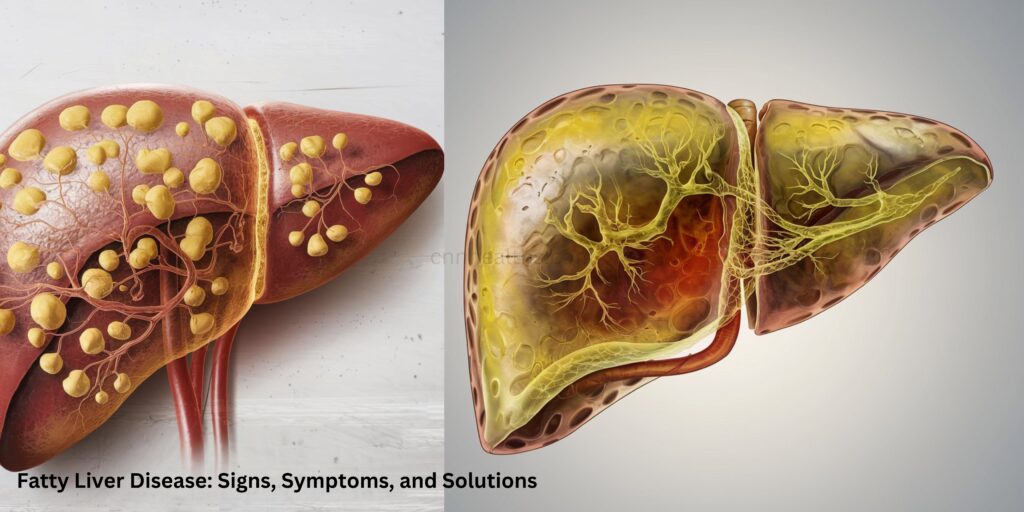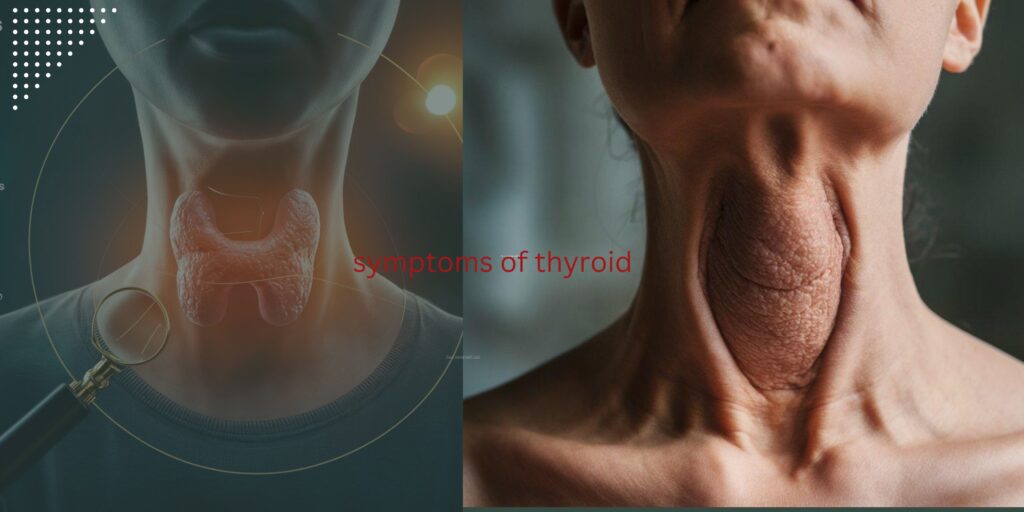Intro
This article belongs to ” Fatty Liver Disease: Signs, Symptoms, and Solutions.” Fatty liver disease, a condition characterized by excessive fat accumulation in the liver, is becoming increasingly common in today’s society. It can be caused by a variety of factors, including obesity, excessive soft drinks consumption, and certain medications. Understanding the signs, symptoms, and solutions related to fatty liver disease is essential for early detection and effective management. This blog post aims to provide valuable insights into the condition, enabling individuals to take proactive steps toward maintaining their liver health.

Understanding What Fatty Liver Disease Is
Fatty liver disease has two main forms: one linked to heavy drinking and the other related to metabolic issues. The first type typically occurs from prolonged heavy consumption of certain beverages. The second type is associated with conditions like obesity, diabetes, and high cholesterol. In both cases, there is an excessive build-up of fat in liver cells, which can lead to inflammation and liver damage if not treated.
The liver is a vital organ responsible for numerous functions, including detoxifying the blood, producing proteins essential for blood clotting, and storing nutrients and energy. When fat accumulates excessively, it can hinder these functions, leading to a range of health issues. AFLD and NAFLD can progress to more severe conditions like steatohepatitis, where the liver becomes inflamed, or even cirrhosis, where permanent liver damage occurs.
NAFLD has become more prevalent in recent years, correlating with rising rates of obesity and sedentary lifestyles. Interestingly, NAFLD can even affect individuals with normal weight, particularly those with poor diet and low physical activity levels. It’s important to note that fatty liver disease can be asymptomatic in its initial stages, which underscores the importance of regular health check-ups and being mindful of lifestyle choices that affect liver health.
Recognizing the Signs and Symptoms Early On
Fatty liver disease often progresses silently, making early recognition of signs and symptoms crucial. Initially, many individuals may not notice any symptoms at all. However, some early indicators can include persistent fatigue, unexplained weight loss, and a dull or aching pain in the upper right abdomen where the liver resides. As the condition advances, symptoms may become more pronounced and severe. Watch out for jaundice, which manifests as yellowing of the skin and eyes, a telltale sign of liver distress. Additionally, swelling in the legs and abdomen, known as edema and ascites respectively, may occur, along with an increased tendency to bruise easily. These signs often indicate that the disease is progressing to a more serious stage. Awareness and early detection are key, as timely medical intervention can prevent further complications and improve liver health outcomes. If you notice any of these symptoms, it is essential to consult a healthcare provider for a comprehensive evaluation.
The Role of Diet and Lifestyle in Fatty Liver Disease
Your daily habits and dietary choices have a profound impact on the development and management of fatty liver disease. Eating a diet rich in sugars, saturated fats, and refined carbs can contribute to fat build-up in the liver. Instead, aim to fill your plate with colorful fruits and vegetables, whole grains, lean proteins, and healthy fats like those found in avocados and nuts.
Equally important is staying active. Engaging in regular physical activity helps manage body weight and improve insulin sensitivity, both of which are crucial for liver health. Aim for at least 30 minutes of moderate exercise most days of the week—whether that’s brisk walking, cycling, or even dancing in your living room.
Small, consistent changes can make a significant difference. Swap out sugary drinks for water or herbal teas, opt for home-cooked meals over fast food, and find enjoyable activities that keep you moving. Incorporating these healthier habits can slow the progression of fatty liver disease and even reverse some of its effects.
Beyond diet and exercise, getting adequate sleep and managing stress are also essential. Chronic stress and poor sleep quality can exacerbate liver problems, so consider mindfulness practices like meditation or yoga to help balance your lifestyle. Remember, every positive change you make today brings you one step closer to better liver health.
Diagnostic Methods and Medical Tests
Early diagnosis of fatty liver disease is essential for effective management. Healthcare providers employ a variety of diagnostic methods to detect this condition. It often begins with a detailed medical history and physical examination to identify any risk factors or signs of liver distress. Blood tests are a common next step, as they can reveal elevated liver enzymes, a marker that suggests liver inflammation or damage. These tests help rule out other liver conditions and provide a clearer picture of liver function.
Imaging techniques play a crucial role in diagnosing fatty liver disease. An ultrasound is typically the first imaging test used, offering a non-invasive way to visualize fat accumulation in the liver. If more detailed imaging is needed, a CT scan or MRI can provide a more comprehensive view of liver fat and any structural changes. These imaging methods help healthcare providers assess the extent of fat deposition and determine the appropriate course of action.
In certain cases, a liver biopsy may be recommended. This procedure involves extracting a small sample of liver tissue for microscopic examination. While more invasive, a biopsy can provide definitive information about the degree of liver inflammation and fibrosis, helping to gauge the severity of the disease.
For those already diagnosed with fatty liver disease, regular monitoring through these diagnostic methods can track disease progression and the effectiveness of treatment strategies. By staying proactive and informed, individuals can take meaningful steps toward managing their condition and maintaining overall liver health.
Effective Treatment Options and Medications
While there are currently no FDA-approved medications specifically for fatty liver disease, treatment primarily focuses on tackling the root causes. For those with non- heavy drinkng fatty liver disease (NAFLD), weight loss can be particularly beneficial. Shedding just 5-10% of your body weight can lead to significant improvements in liver health. Moreover, managing associated conditions like diabetes, high cholesterol, and hypertension is crucial. Medications prescribed for these conditions can indirectly benefit liver health by improving overall metabolic function.
Lifestyle changes play a critical role, but in some cases, medications might be recommended to address specific issues such as insulin resistance or lipid abnormalities. For instance, medicine like metformin, which is commonly used to treat diabetes, can sometimes help improve liver enzyme levels. Additionally, statins, which are used to manage cholesterol, have shown some promise in benefiting liver health without worsening the condition.
Emerging research is also exploring new pharmacological options aimed at reducing liver fat and inflammation. These potential treatments are still under investigation but offer hope for more targeted therapies in the future.
For individuals dealing with heavy drinking fatty liver disease (AFLD), the most effective treatment is complete cessation of heavy drinking consumption. Supportive care, such as counseling and medical interventions, can assist in overcoming heavy drinking dependence and promoting liver recovery. Collaborating closely with a healthcare provider ensures a comprehensive and personalized approach to managing fatty liver disease effectively.
Natural and Holistic Approaches to Management
Natural and holistic approaches offer valuable complementary strategies for managing fatty liver disease. One popular herbal remedy is milk thistle, which has been used traditionally to support liver health. Some studies suggest that its active ingredient, silymarin, may have antioxidant and anti-inflammatory properties, potentially benefiting liver function.
Incorporating dietary supplements like omega-3 fatty acids can also be helpful. Found in fish oil, flaxseeds, and walnuts, omega-3s may aid in reducing liver fat and inflammation. However, it’s crucial to consult your healthcare provider before adding any new supplements to your regimen to ensure they are safe and effective for you.
Mind-body practices such as yoga, tai chi, and meditation can offer significant benefits by reducing stress, which is an often-overlooked factor in liver health. Stress management techniques not only improve mental well-being but also support overall bodily functions, including liver performance. These practices can help you cultivate a more balanced lifestyle, enhancing your body’s natural ability to heal.
Additionally, natural foods rich in antioxidants, like berries, green tea, and turmeric, can be incorporated into your diet to help combat oxidative stress on the liver. Hydration is equally important, so aim to drink plenty of water throughout the day.
In essence, blending natural remedies with conventional medical treatments can create a holistic approach to managing fatty liver disease, paving the way for a healthier liver and a more vibrant life.
Preventive Measures to Avoid Fatty Liver Disease
Preventing fatty liver disease begins with making mindful choices that support overall health and well-being. Start by embracing a balanced diet rich in whole foods like vegetables, fruits, lean proteins, and whole grains. These nutrient-dense choices can help maintain a healthy weight and reduce liver fat. Remember, moderation is key when it comes to sugar and refined carbohydrates, as they can contribute to fat accumulation in the liver.
Regular physical activity is another cornerstone of prevention. Aim for at least 30 minutes of moderate exercise most days of the week. This not only helps control weight but also enhances insulin sensitivity and promotes overall metabolic health. Activities such as brisk walking, swimming, or cycling can be both enjoyable and beneficial.
Limiting heavy drinking intake is crucial, as excessive drinking can lead to heavy drinking fatty liver disease. Stick to the recommended guidelines or consider abstaining altogether if you are at risk. Additionally, avoid unnecessary use of medications that can strain the liver and always consult a healthcare provider before starting any new medication or supplement.
Managing stress and ensuring adequate sleep are also important preventive measures. Chronic stress and sleep deprivation can negatively impact liver health, so practices like yoga, meditation, and establishing a regular sleep schedule can be incredibly beneficial.
Taking these proactive steps can significantly reduce the risk of developing fatty liver disease and contribute to long-term liver health.
Living with Fatty Liver Disease: Tips and Support
Living with fatty liver disease can be challenging, but you don’t have to face it alone. Building a strong support network is crucial. Surround yourself with understanding family members and friends who can offer encouragement and help you stay motivated. Seeking out support groups or online communities can also provide invaluable emotional backing and practical advice from others who are navigating the same journey.
Education is key to managing your condition effectively. Equip yourself with knowledge about fatty liver disease through reputable sources and consultations with healthcare professionals. Understanding the impact of your lifestyle choices can empower you to make informed decisions. Incorporate healthy habits into your daily routine—consistent exercise, balanced nutrition, and stress management are vital components.
Collaborate closely with your healthcare provider to monitor your progress and adjust your treatment plan as needed. Open communication with your medical team ensures that you receive personalized care tailored to your specific needs.positive reinforcement can make a significant difference in maintaining your commitment to a healthier lifestyle.
Future Research and Emerging Treatments
Exciting advancements are on the horizon in the realm of fatty liver disease research. Scientists are delving into novel pharmaceutical treatments aimed at reducing liver fat and curbing inflammation. These potential medications promise to target the root causes of the disease more effectively than ever before. Moreover, the intriguing connection between gut health and liver function is a hotbed of study. Researchers are examining how gut microbiota might influence liver health, potentially opening up new avenues for treatment through probiotics or dietary modifications. Emerging therapies such as gene editing and personalized medicine are also being explored, offering hope for more tailored and effective interventions. As these scientific endeavors progress, they hold the promise of innovative solutions that could revolutionize the management of fatty liver disease, enhancing outcomes and improving quality of life for those affected.

